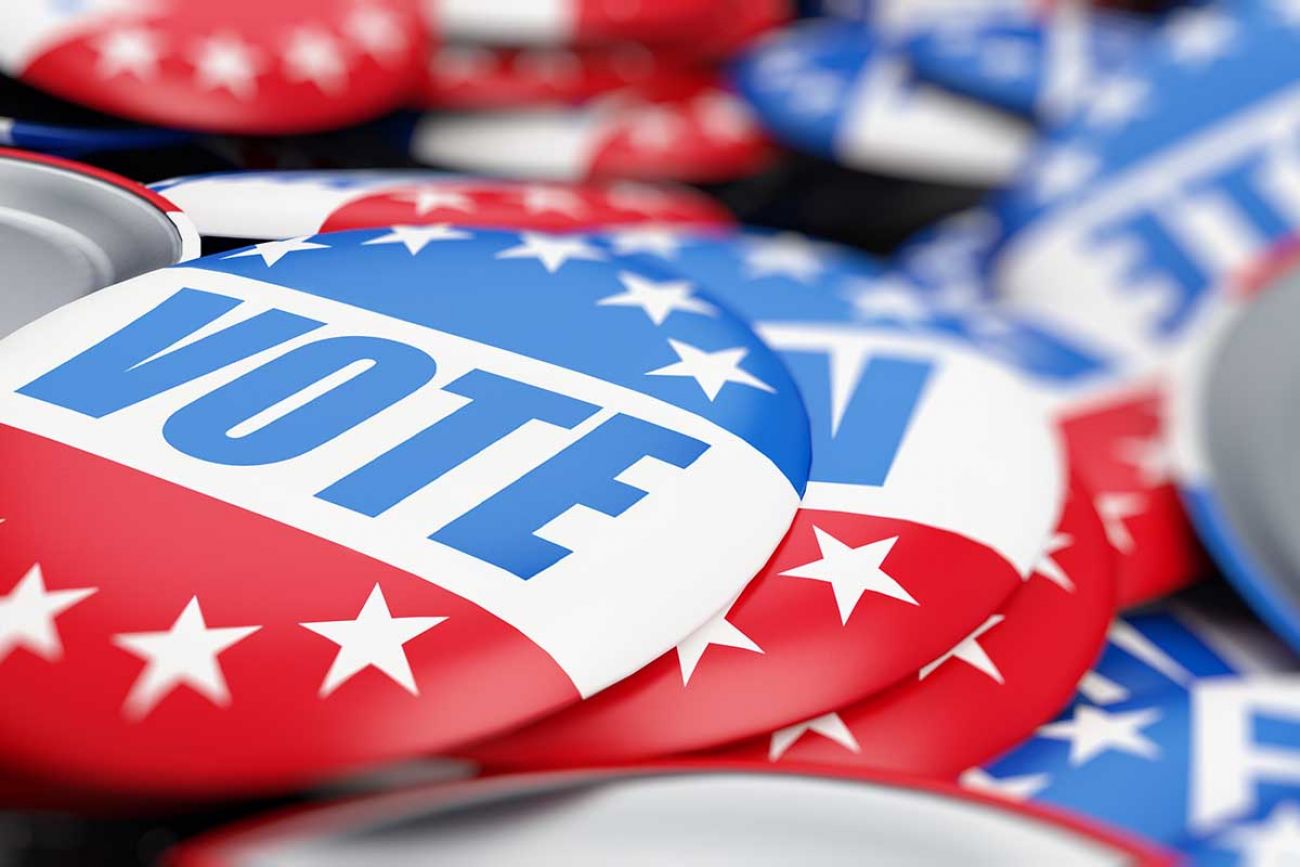Michigan Democrats set to gather amid dissent about priorities

April 9: Whitmer, Benson, Nessel: Democracy at stake in Michigan’s fall elections
LANSING — Michigan Democrats this weekend could call for the removal of a monument to Gen. George Custer in Monroe and support legislation to protect Native American burial sites.
They may stay silent, however, on some issues close to urban and rural members, such as minority legislative representation and rural broadband.
The issues are among those that made the cut — and did not — of 20 proposed priorities that members are expected to vote on Saturday during the party's annual endorsement convention in downtown Detroit.
Related:
- With Roe in doubt, Gretchen Whitmer moves to protect abortion in Michigan
- Fred Upton retires. Another Trump critic finds no home in today’s GOP
- Donald Trump returns to Michigan to back his candidates, prepare for ‘24
The resolutions are largely symbolic in a convention that otherwise could lack drama and serve mainly to endorse the re-election candidacies of Attorney General Dana Nessel and Secretary of State Jocelyn Benson, along with candidates for the state Board of Education, university governing boards and the Michigan Supreme Court.
Far more fireworks are expected April 23, when Republicans meet for their convention in Grand Rapids to endorse GOP nominees for attorney general, secretary of state and judge candidates among crowded slates.
The resolutions highlight the Democratic Party’s priorities “at the moment,” party spokesperson Abby Rubley told Bridge Michigan.
As such, they underscore some conflicts.
Michigan Progressive Caucus Chair Abel Delgado, a Flint resident, told Bridge Michigan most resolutions do not touch upon racial injustice and are not enough to combat “Trumpism” and GOP efforts to ban things like the teaching of “Critical Race Theory.”
“We still have to go up against the fact that the GOP is mobilizing their base through racism,” he said. “We have to have a dominant narrative to address that, and we haven’t yet.”
Detroit-area party members wanted to submit a resolution opposing new redistricting maps that eliminate two majority-minority congressional districts but did not submit paperwork in time, said Jonathan Kinloch, chair of the 13th Congressional District Democratic Party that covers much of Detroit.
The resolution urges the state Supreme Court to send the maps back to Michigan’s redistricting panel, which prompted a lawsuit from the Detroit Caucus of Michigan Legislature. The caucus argued the maps would dilute the power of Black voters, but a judge dismissed the suit in February.
Kinloch said he missed the deadline by one day, and he found it “unusual” for the state party to dismiss the resolution. He said he will bring it back when Democrats meet again in the fall.
“In the past, for resolutions brought forward, we wouldn’t be so stern and strong (with the deadline),” he said. “We tried to be more lenient in our deliberations in the past.”
Some Democrats feel the state party did not speak out enough to support Black lawmakers’ lawsuit on redistricting, Kinloch said, stressing he is not one of them.
“There was a sense by some who felt … in the 13th District that the party did not want to take it up because they somehow felt that the party really was very supportive of these maps, because they gave Democrats more options to be elected to the demise of Black votes,” Kinloch said.
“A lot of folks felt in a meeting that the party did not speak out loud enough against these maps and help with any challenges.”
Cathy Albro, chair of the Michigan Democratic Rural Caucus, told Bridge that while she knows the list isn’t comprehensive, she hoped to see more resolutions addressing rural broadband services, clean water, tele-health expansion and social economic injustices.
“From my point of view, I think the last go-around was more comprehensive,” she said of last year’s convention. “I’d want to see more having to do with economic development and justice and education (as well).”
The resolutions
Instead, party members will vote on whether to urge the city of Monroe to remove a statue of Custer, who spent his childhood there and later was a Union general who also fought Native Americans before his death in the Battle of Little Bighorn,.
The debate over how to handle the monument has persisted for years in Monroe, with the city council agreeing in 2020 to update the monument with more information. In 2021, the city terminated a plan to hire an outside consultant to decide the future of the monument.
The Democratic resolution states Custer was "notoriously known as the 'Indian Killer,'" and the statue is a "painful public reminder of the genocide of Indigenous peoples."
“Decades of research show that racist policies, symbols, and behaviors are linked with lower well-being, educational barriers, physical health problems, employment problems, such as higher job turnover for people who endure racism and ethnocentrism like many American Indians and Alaska Natives,” the resolution states.
Another resolution would call upon the party to support legislation protecting burial sites outside federal or tribal lands.
The Native American Graves Protection and Repatriation Act protects burial sites on federal or tribal lands, but state law governs burial sites elsewhere. There is no current Michigan law protecting those sites from intentional development, according to the convention resolution.
The Anishinaabek Caucus of the Democratic Party has pushed for both resolutions to raise awareness statewide, said caucus vice chair Nat Spurr.
“Where there are human remains or sacred artifacts, things along those lines, unfortunately, because of the lack of existence of these laws, we worry about people taking ownership … of these,” Spurr said of the reason the caucus introduced the burial site resolution.
“We basically want the support of the party as the foundation block,” he added.
Other resolutions
Almost half of the proposed resolutions urge the state Democratic Party to oppose GOP-led proposals and back liberal-leaning petition groups. The Michigan Democratic Party has already expressed its stance on several of them.
The party has spoken against a string of GOP-backed initiatives seeking to tighten election rules, establish a school voucher-like scholarship program and force a “forensic audit” of the 2020 elections.
Through a coalition called Public Health over Politicians, the party is also funding efforts against conservative ballot measure Unlock Michigan II, which seeks to limit the length of emergency orders from state or local health officials to 28 days, unless extended by the state Legislature or local governments.
The Michigan Democratic Party is also bankrolling ballot group Empower MI Vote, which was formed to work against the GOP-led Secure MI Vote, campaign records show.
In addition to ballot measures, several other resolutions urge Democrats to call for changes to the state’s no-fault auto insurance reform measures, make unemployment benefits tax-exempt, prevent farm product monopolies and expand Medicare to reach all Michiganders.
See what new members are saying about why they donated to Bridge Michigan:
- “In order for this information to be accurate and unbiased it must be underwritten by its readers, not by special interests.” - Larry S.
- “Not many other media sources report on the topics Bridge does.” - Susan B.
- “Your journalism is outstanding and rare these days.” - Mark S.
If you want to ensure the future of nonpartisan, nonprofit Michigan journalism, please become a member today. You, too, will be asked why you donated and maybe we'll feature your quote next time!




